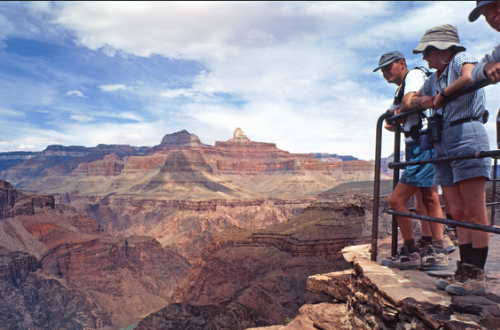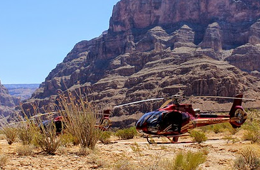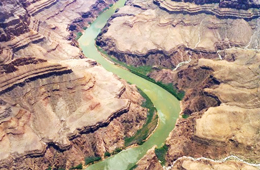
If you would like to embark on a Grand Canyon hiking adventure, but, refrain from doing so because you suffer from a medical condition, you will be pleased to know that there are several safety precautions that you may make that will not only allow you to explore the Grand Canyon at length, but, will also help you to experience as few side effects from the endeavor as possible. There are several Grand Canyon attractions that everyone should get to experience in their lifetime. If you suffer from certain medical conditions, such as arthritis, fibromyalgia, asthma, diabetes, a heart-related issue, or other type of physical complication, you may avoid experiencing all that Grand Canyon hiking as to offer you in fear of suffering from the symptoms associated with your medical condition. The good news is, by simply taking the time to plan your trip, preparing for your trip, learning about the environment, taking a partner along with you, and making good choices, you may experience Grand Canyon hiking at its best, regardless of what physical issues you suffer!
Know Your Abilities and Limitations
Before indulging in the activity of Grand Canyon hiking, you should thoroughly understand your unique abilities and the limitations that your medical condition poses on you. It is imperative to know and understand that you will be hiking and viewing Grand Canyon attractions at a high level of elevation and that you will be exposed to extremely hot, dry conditions. Each and every single person that has performed this hike has expounded on the fact that it was much more difficult than they originally anticipated. If you suffer from conditions, such as asthma, heart problems, and knee issues, you should ensure that you limit the amount that you are exposed to the heat and limit the exertion caused by Grand Canyon hiking. Several factors, such as altitude, lack of proper hydration, and heat could result in complications with those that suffer from medical conditions. Know your abilities and your limitations when embarking on hiking to observe the ever-popular Grand Canyon attractions for optimal safety when it comes to your medical conditions.
Less is Best
If you suffer from a medical condition but have a desire to engage in the activity of Grand Canyon hiking, it is important to know and understand that less is best. That is, you should travel as lightly as possible. You should make a point to make your food and water sources the absolute heaviest of items that you carry while embarking on the adventure of seeing all the Grand Canyon attractions. You should make a point to integrate the use of hiking sticks, which will reduce the amount of stress that is placed on your legs. You should make certain that you bring along a first aid kit, a whistles, and purification tablets for water. Additional measures that should be taken are wearing comfortable clothing, sunscreen, a hat, and sunglasses. You should also bring along any medications and/or medical supplies that directly relate to your medical condition. That way, should you experience any complications, you have all that you need while engaging in Grand Canyon hiking.
Conclusion
As you can see, there are several steps that may be taken to assist you on your Grand Canyon hiking trip, if you suffer from a medical condition. In Part One of our guide, you have been instructed on understanding your abilities and limitations, packing what is necessary and relevant to your individual needs, and been offered a few pointers on how to improve your comfort while hiking to see all of the Grand Canyon attractions that you want to see, such as using hiking sticks. In addition to this, you may take a little strain off of your body by taking a mule tour or a helicopter tour of the National Grand Canyon. Be sure to check back soon as we will be posting Part Two of our guide on Grand Canyon hiking with a medical condition.



